This is my 21st weekly COVID-19 update. Subscribe to Dr. Dina
Hello friends,
I hope you are all healthy and safe and thriving!
The weather is turning warmer and sunnier, and we can be very excited about that!
Thank you again for all your inspiration and support each week with these updates.
I know it can be challenging to navigate the pandemic landscape, and I am happy to distill some important points from the week, so you don’t have to weed through the science versus the nonsense.
I hear from many of you each week that you are forwarding the newsletter to family and friends. Thank you! I am happy to help educate you and your loved ones.
As we do each week, let’s review the bad news, followed by the good news. I will answer the most common question of the week and end with my silver lining.
What is the bad news?
Canada has reported ~930,000 cases of COVID-19, with almost 23,000 deaths.
There have been increasing concerns about the variants of concern (VOC) that threaten our progress to contain COVID-19.
Last Thursday, Canadian officials reported 4,499 cases of variants of concern, including:
• 4,169 cases of the B117 variant (first reported in the United Kingdom)
• 241 cases of the B1351 variant (first reported in South Africa)
• 89 cases of the P1 variant (first reported in travellers from Brazil)
Teresa Tam said, “If we don’t slow down the spread of the variants, team vaccine is at risk of falling behind. But if we can hold on and give it that last push, by keeping up with personal protective measures and limiting our contacts to the extent possible, we will clear the path for team vaccine to cross the finish line.”
I urge you all to continue practicing public health measures. Wear a mask. Keep your distance. Stay home if you’re sick. Wash your hands. You know the drill.
Despite these concerns, Ontario is loosening some restrictions. Toronto and Peel restaurants will see increasing restaurant capacity for outdoor dining. These cities will remain in the ‘grey lockdown’ category, but outdoor meal service will be allowed.
Other cities in the ‘red’ category will serve 50 people indoors, from the previous limit of 10 people. “Orange’ zone zones will be allowed 100 people indoors, from the prior limit of 50 patrons.
Outside of Ontario, Regina, Sask. has a large VOC outbreak, and their students will return to virtual learning until at least April 12.
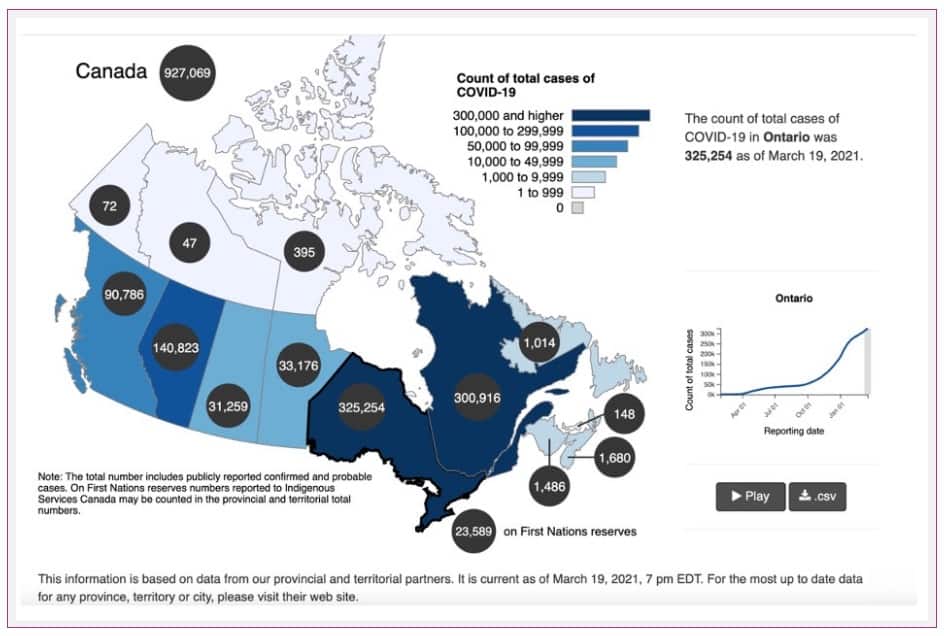
There have been more than 122 million cases of COVID-19 reported worldwide. Over 2.6 million people have died from COVID-19.
Several countries have seen recent sharp rises in cases, including Italy, France, and Poland in Europe, India, the Philippines, Iran, Jordan, and Iraq. Brazil is still facing a serious wave; Argentina, Colombia, and Mexico have recorded over 2 million cases.
The United Nations says that over 20 million people in Latin America and the Caribbean have been pushed into poverty during the COVID-19 pandemic. Devastating.
Australia and New Zealand continue to demonstrate their incredible response to the pandemic, with very few deaths reported and no recent wave of new cases.
I know some of you are visual learners, so let’s look at the countries by region.
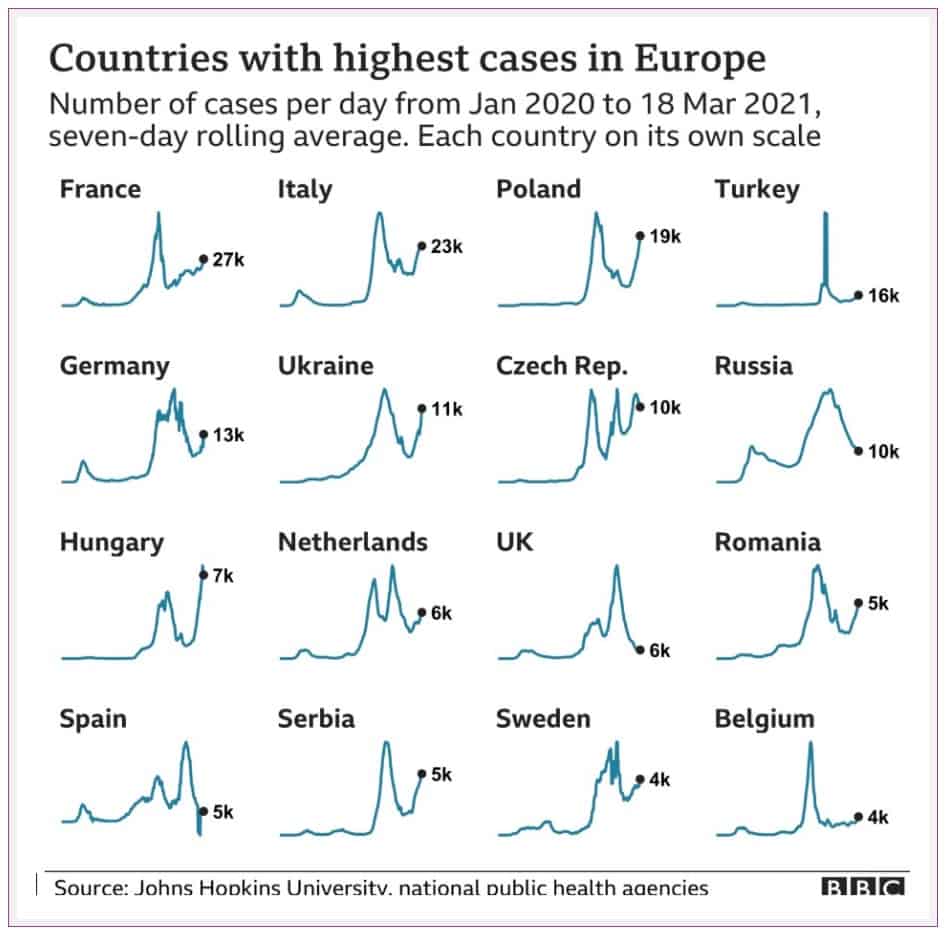
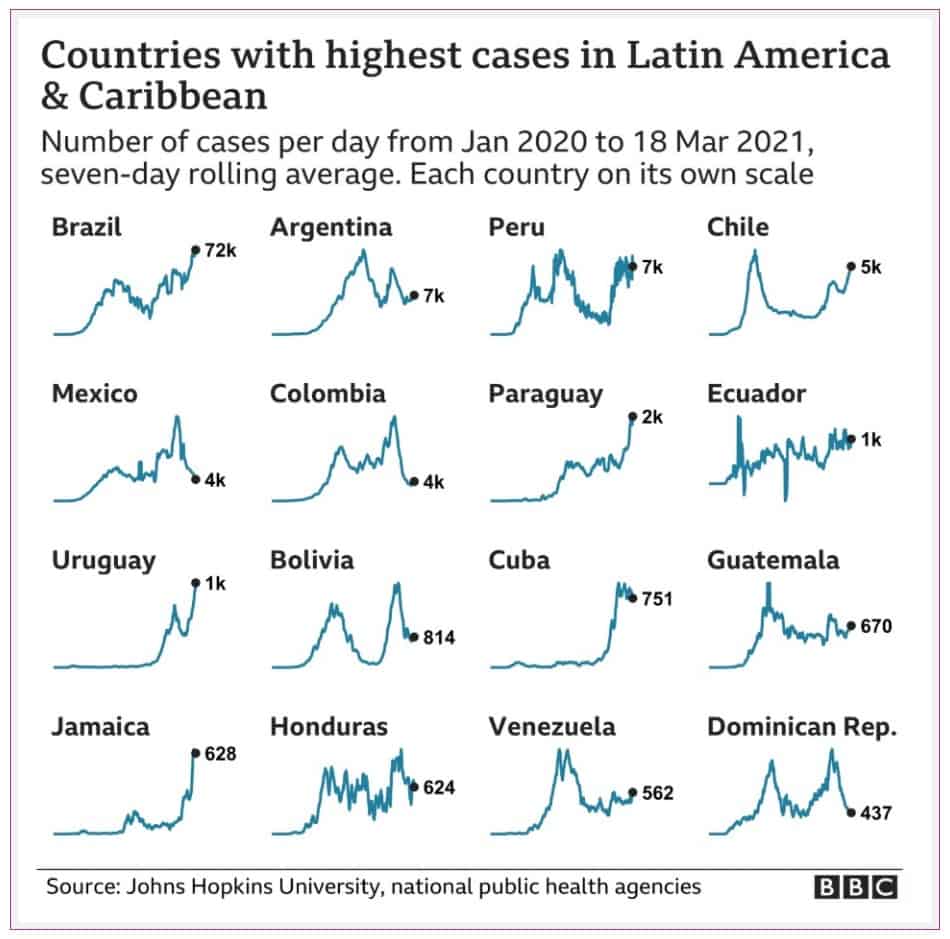
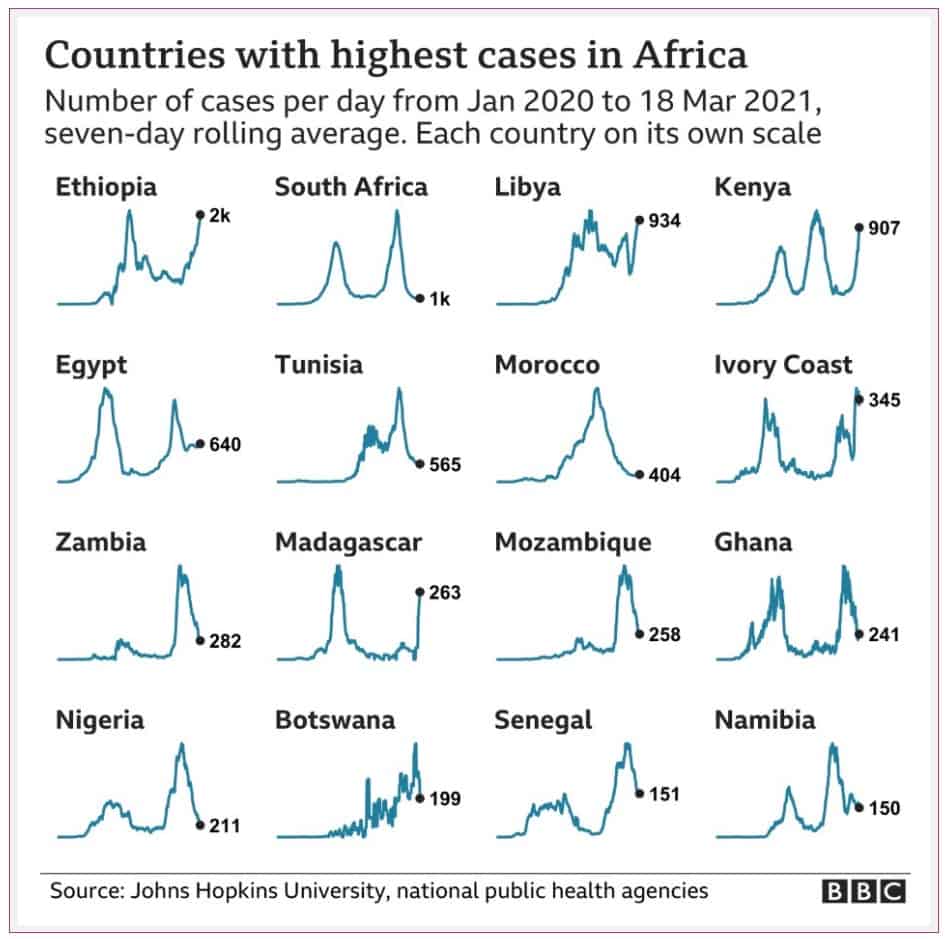
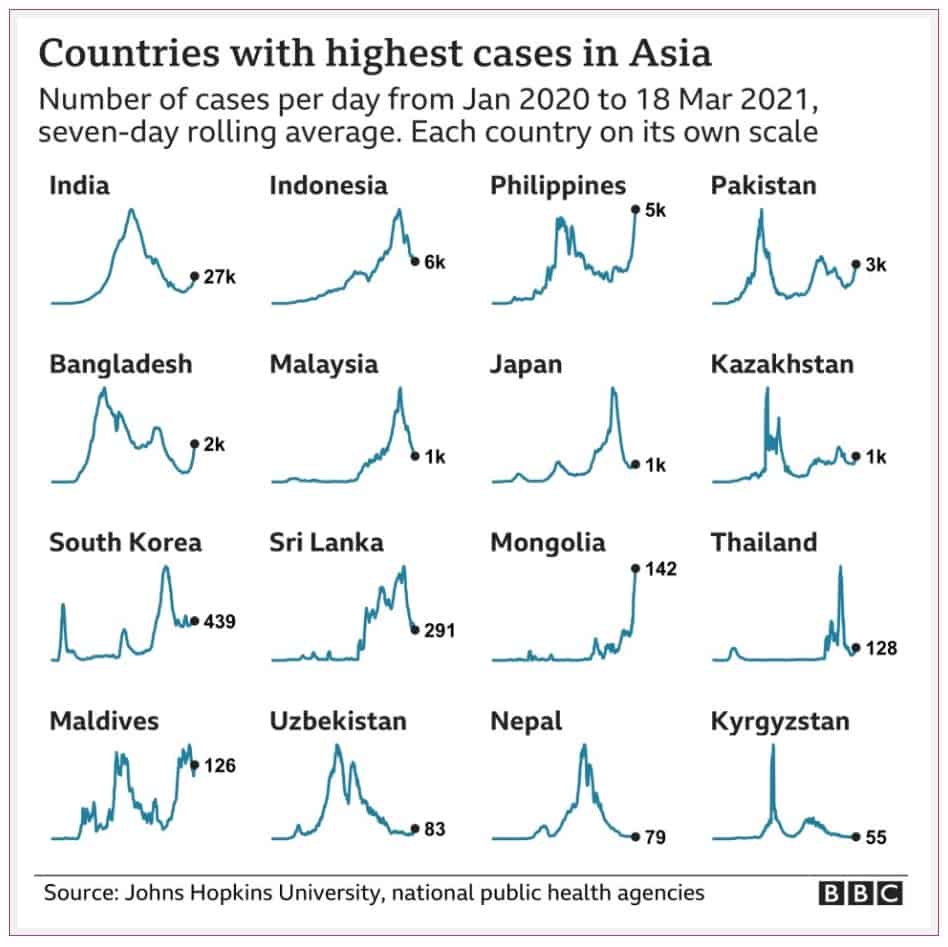
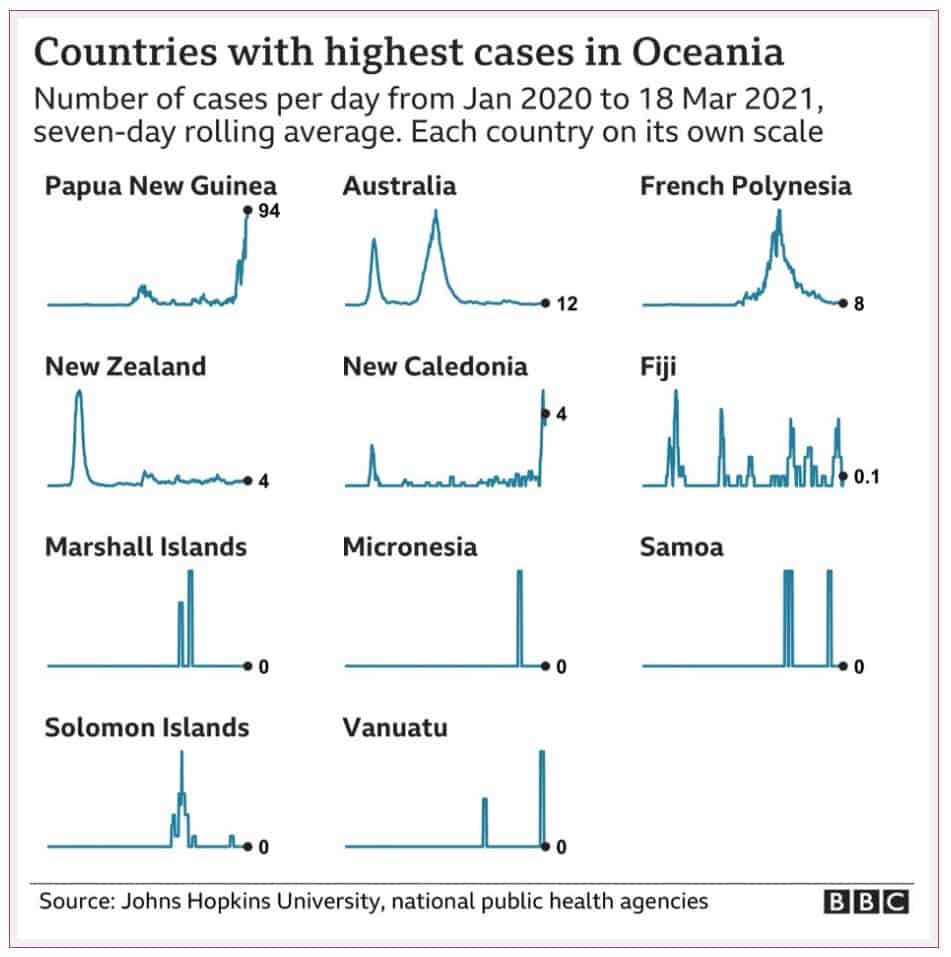
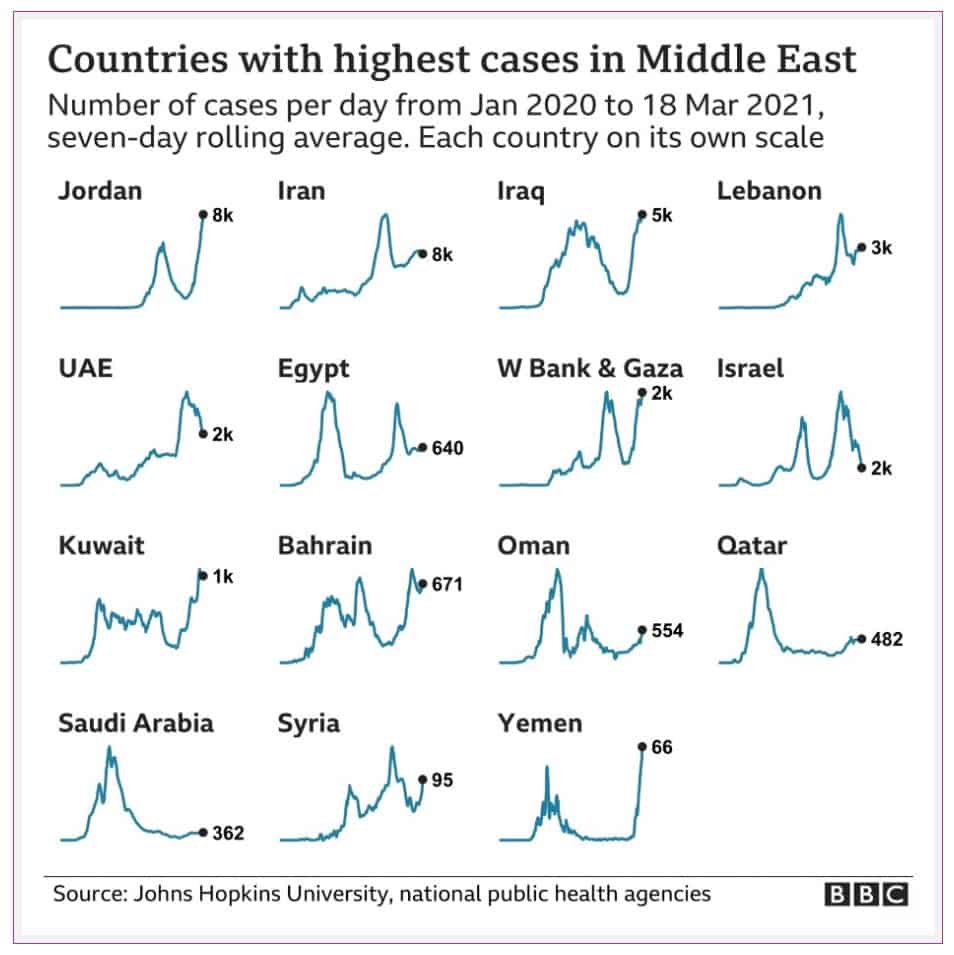
Resource: Johns Hopkins University
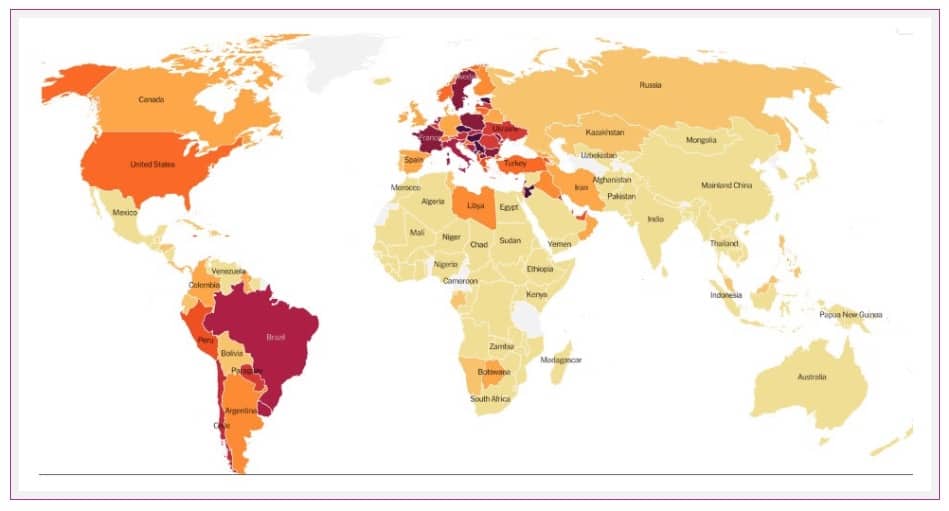
What is the good news?
The vaccine rollout continues, and as of today, Ontarians aged 75 and older can begin to schedule COVID-19 vaccine appointments through the Ontario vaccine booking portal. In Quebec, citizens 65 years of age and older can access the vaccine. The plan is to vaccinate five million people with the first dose of a vaccine in the next hundred days. Nunavut has enough COVID-19 vaccine doses to vaccinate 75% of the adults living there.
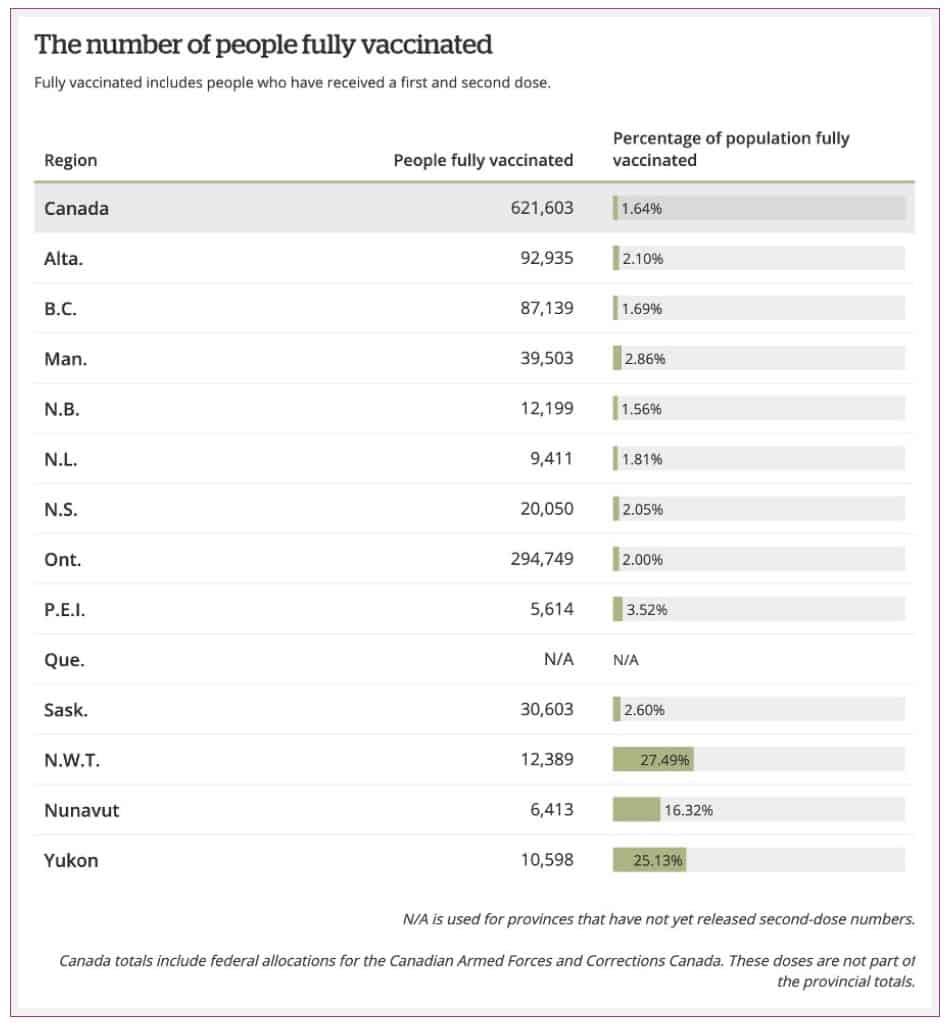
Let’s compare the Canadian vaccine roll out with other countries around the world:
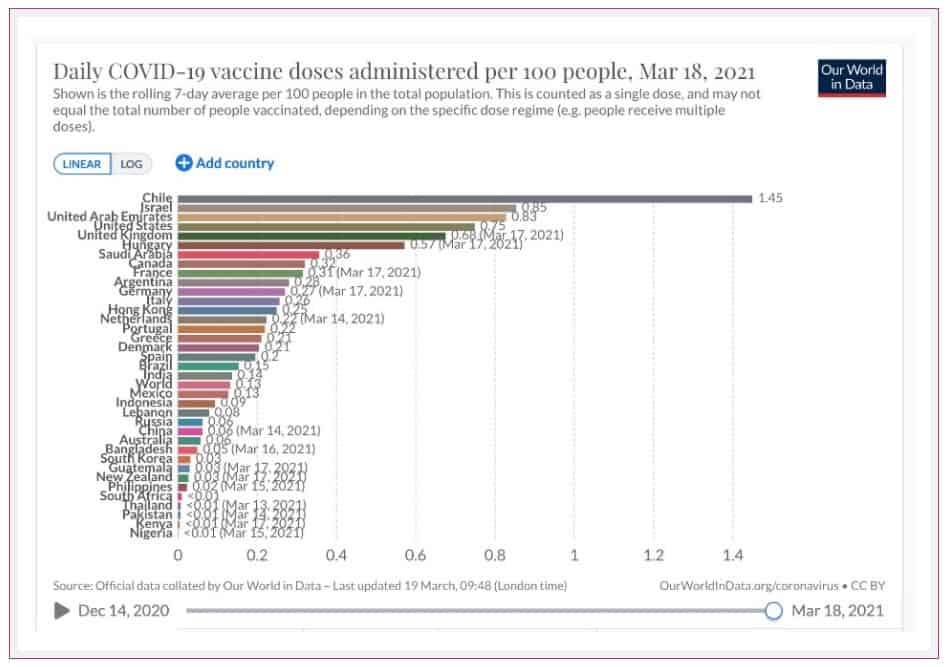
It is interesting to see which countries are vaccinating at the fastest rate. You can check out “Our World In Data” to see how various regions compare.
Should we be wary of the AstraZeneca vaccine?
This week, there was much concern about the safety of the AstraZeneca COVID-19 vaccines and the potential increased risk of blood clots. The World Health Organization and other health groups concluded last week that there is no increased risk in clotting, and the vaccine has a ‘tremendous potential to prevent infections and reduce deaths across the world.”
The most common question of the week:
What’s the deal with the COVID-19 trial in kids?
I was asked countless times this week by patients, followers, and the media about the KidCOVE study.
This clinical trial will enroll 6750 kids in the US and Canada, age six months to eleven years.
The trial is broken into two parts.
Phase 1: babies age six months to one year will receive two doses of the Moderna COVID-19 vaccine, in either 25, 50, or 100 microgram doses, 28 days apart.
Kids between the ages 2-11 years will receive two doses, either 50 or 100 micrograms, 28 days apart.
The first part of the study will determine which dose works the best and is the safest.
Phase 2: the best dose from phase 1 will be compared to placebo (saline solution).
The children enrolled in the study will be followed for 12 months.
This study will help determine if the vaccine is safe and effective in preventing COVID-19 infection and illness in kids. It will also identify what is the best dose in babies and kids.
As we get more information, I will be sure to pass it along!
My silver lining for the week
I was talking to a mom and her baby on Friday. We were talking about how hard COVID has been for our communities and kids and families. We were lamenting that if this is the worst, we would be ok with that. We have been lucky, comparatively. Many other families are suffering far worse than us.
I thought if this is the worst challenge my family faces, I am lucky.
I sure hope this is the more significant challenge our kids face. They have learned to be flexible and resilient and brave and patient. They have seen how lucky they are to live in Canada, have a home and food, and have excellent educational opportunities from home and in the classroom.
My silver lining is the hope that this is the biggest struggle we will face as parents and caregivers. And it is all up from here. Let’s hope that is true for all of us and our communities.
Have a healthy and safe week, friends,
#YOUGOTTHIS


![[Dr. Dina News] IMPORTANT UPDATE re. VIRTUAL CARE](https://drdina.ca/wp-content/uploads/2021/01/dr-dina-kulik-kids-and-virtual-care-1a-400x250.jpg)
![[Dr. Dina News] COVID-19 Vaccine for Infants and Young Children.](https://drdina.ca/wp-content/uploads/2021/04/dr-dina-kulik-kids-and-vaccines-400x250.jpg)
![[Dr. Dina News] COVID-19 Vaccine for Infants and Young Children.](https://drdina.ca/wp-content/uploads/2022/04/DRD-1-400x250.jpg)






